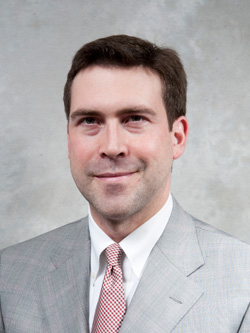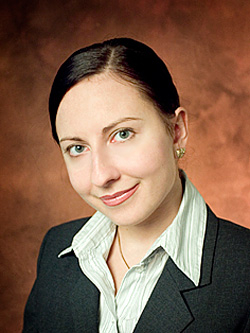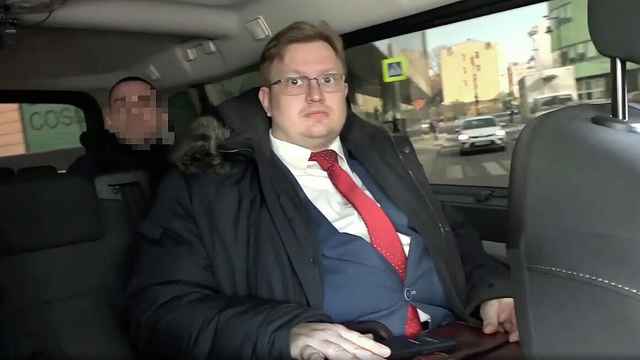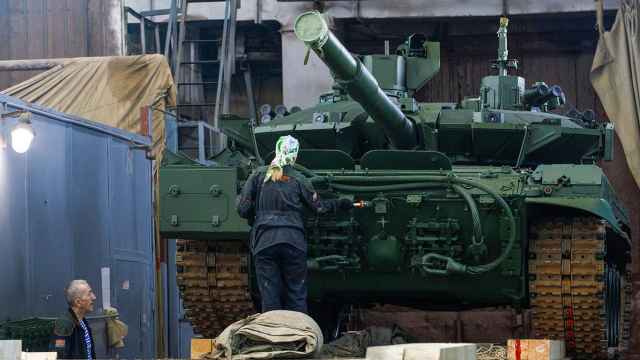
Peter Reinhardt
Partner, Human Capital
Ernst & Young
The category of Highly Qualified Specialists (HQS) was introduced in Russian immigration legislation almost a year ago, on July 1, 2010, as a result of President Dmitry Medvedev's initiatives to foster innovation in the economy and attract foreign investment, and following three intensive and fruitful months of collaboration with the government to design the regime and draft the legislation. The resulting amendments have substantially simplified the procedure for top talent to enter Russia to work.
According the Federal Migration Service (FMS), nearly 10,000 such HQS work permits have been issued to date, with Germany being the leader.
An HQS is defined as a foreign citizen earning at least 2 million rubles on an annualized basis in Russia and employed in a commercial Russian organization or in an accredited branch of a foreign legal entity (representative offices are not included). HQS enjoy many substantial benefits, including:
- A much simpler and shorter work permit and visa application process;
- Work permits and visas (including accompanying family members) that can be valid for up to three years instead of one;
- The ability to get a single work permit for multiple regions, as opposed to multiple permits being required under the ordinary system;
- The right to apply the 13 percent tax rate to earnings in an HQS capacity even if a tax non-resident (normally this rate is available only to tax residents);
- The option of receiving permanent residency permits on the back of the HQS work permit.

Nadezhda Serova
Manager, LL.M, Executive MBL-HSG
Ernst & Young
The HQS regulations were liberalized even further as of Feb. 15, 2011. First, registration rules were revised to require registration of HQS only for stays in Russia in excess of 90 consecutive days (by contrast, for non-HQS the requirement was more recently revised from three to seven days). Also, the term "HQS" was somewhat redefined to lower the earnings test for certain groups of foreigners. This term now also includes: (а) a foreign scientific worker or teacher invited to engage in research and scientific or teaching activities by accredited higher education institutions, national academies of sciences or their regional branches, national research centers or state scientific centers, with annualized earnings of at least 1 million rubles; and (b) a foreign expert to be involved in the Skolkovo Project in accordance with the federal law on the Skolkovo Innovation Center, with no earnings requirement whatsoever. At the same time persons engaged in missionary work or other religious activities are now expressly excluded from the HQS regime.
The following are among the major simplifications connected with the HQS application process:
- Employers are not obliged to obtain quota to engage such individuals — a major improvement in itself, since quota is often the single greatest barrier to receiving work permits under the regular system;
- Employers are not obliged to post vacancy information with a local employment center and interview local candidates before obtaining a conclusion on the expediency of engaging foreign citizens in relation to positions held by HQS;
- Employers are not obliged to obtain a permit to engage foreign employees who are HQS;
- Employees are not obliged to provide legalized or apostilled copies of higher education diplomas (judgments as to qualifications are left to prospective employers);
- Under current procedures, the usual barrage of medical tests is not required either (apart from an HIV test typically still being required for the visa application itself).
As a result, it only takes about three weeks for an HQS work permit and visa invitation application to be processed, whereas the usual system, from quota application through to visa invitation, can take anywhere from three to 23 months depending on various timing factors.
Having said that, as is common with most legislation, in particular new legislation, a number of challenges have been observed in ground-level administration. An incomplete list thus far includes:
- Debates with immigration officers as to what is included in earnings: While the law was purposely written to set an "earnings" test, not a "salary" test, at times one is challenged by officers seeking to apply a more narrow view as to what constitutes "earnings" for purposes of the 2 million ruble threshold;
- Issues with multi-region permits: While the law was written purposely to enable receipt of permits for more than one region, including regions where the employee could prospectively be working in future, some officers have sought to require that the business already be registered in such other regions, and further only in certain legal forms, as a precondition for issuance of a multi-region permit;
- Multiplication of the earnings test: Where an individual is working for one and the same employer in multiple regions, some officers have suggested that the 2 million ruble test must be met at each and every location;
- Some officers have sought to require unrelated changes to employment agreements already entered into by the employer and employee.
Our experience shows that constructive dialogue has ultimately been able to resolve the majority of these issues to varying extents, both on a systemic basis as well as in respect of specific cases, but employers of HQS need to be aware that certain wrinkles do appear from time to time that need to be ironed back out.
Notwithstanding these administrative issues, the regime is overwhelmingly beneficial, and therefore rightly and logically a number of safeguards were placed around it with which employers need to be familiar and comply:
- All applications are processed through a single FMS office in Moscow rather than being delegated to the regions;
- Employers are obliged to register HQS with the tax authorities and confirm that fact to the FMS within one month of receipt of the HQS permit;
- Employers must report to the FMS each quarter (by the end of the month following the quarter) earnings delivered to HQS, to enable continual monitoring that the earnings test is in fact being met;
- Employers must ensure contractually and in fact that private medical insurance coverage valid for Russia is provided to the HQS and any accompanying family members.
A single violation of the regime, or indeed of immigration rules more generally, can result in an employer being banned from using the HQS regime for up to two years. Therefore, it is critical that employers have tight controls in place to ensure absolute compliance at all times.
The introduction of the HQS category is undoubtedly playing a key part in increasing the attractiveness of the Russian market for international business and talent. The Russian government credits the system for many millions of dollars of new investment already. As administration of the regime improves, that result should only get better.
A Message from The Moscow Times:
Dear readers,
We are facing unprecedented challenges. Russia's Prosecutor General's Office has designated The Moscow Times as an "undesirable" organization, criminalizing our work and putting our staff at risk of prosecution. This follows our earlier unjust labeling as a "foreign agent."
These actions are direct attempts to silence independent journalism in Russia. The authorities claim our work "discredits the decisions of the Russian leadership." We see things differently: we strive to provide accurate, unbiased reporting on Russia.
We, the journalists of The Moscow Times, refuse to be silenced. But to continue our work, we need your help.
Your support, no matter how small, makes a world of difference. If you can, please support us monthly starting from just $2. It's quick to set up, and every contribution makes a significant impact.
By supporting The Moscow Times, you're defending open, independent journalism in the face of repression. Thank you for standing with us.
Remind me later.





